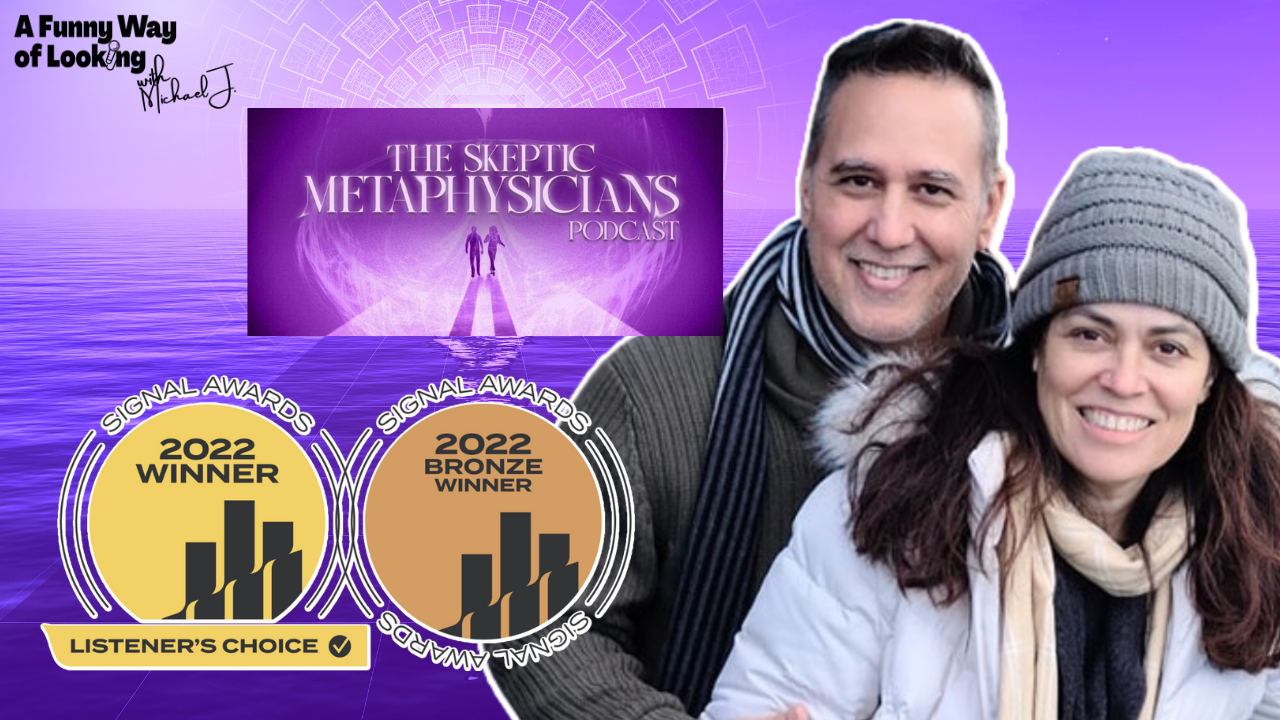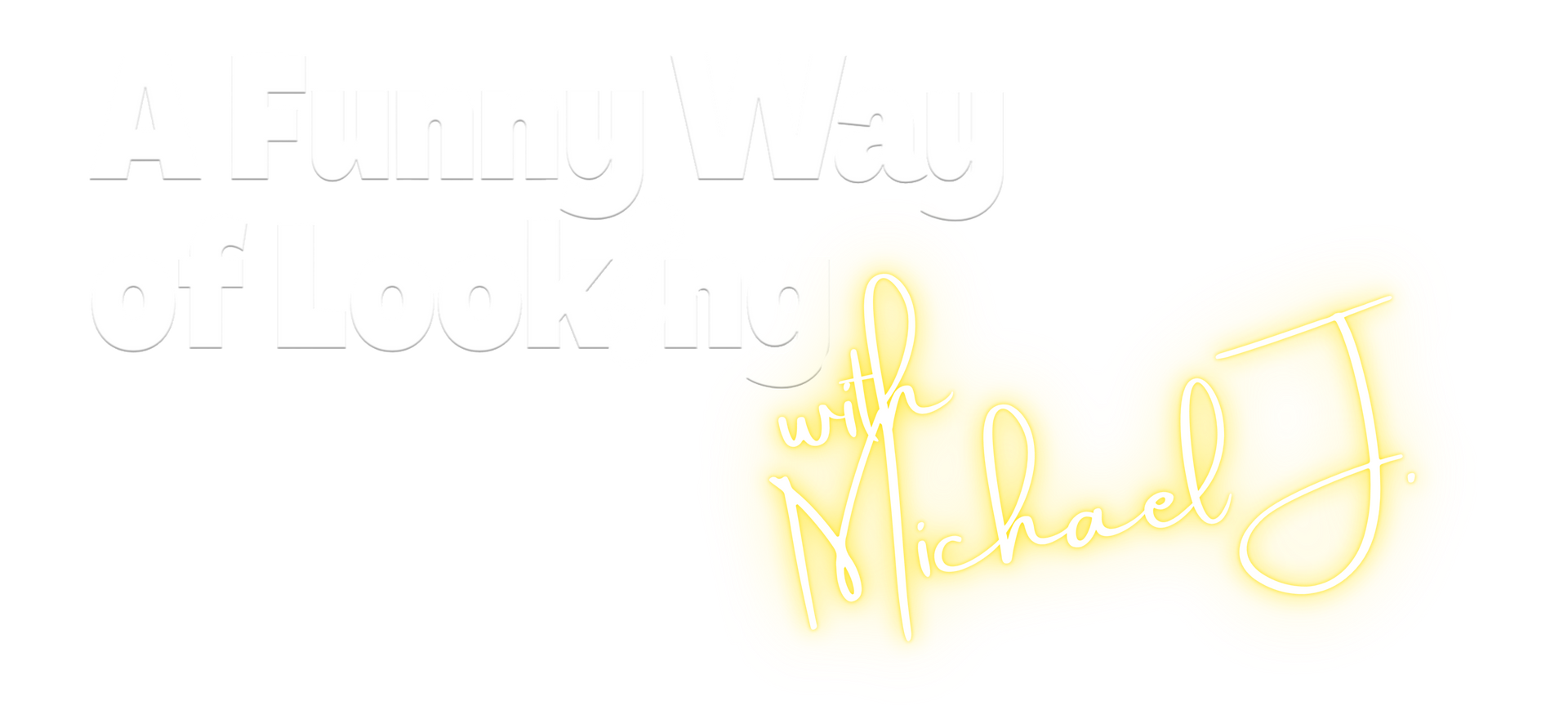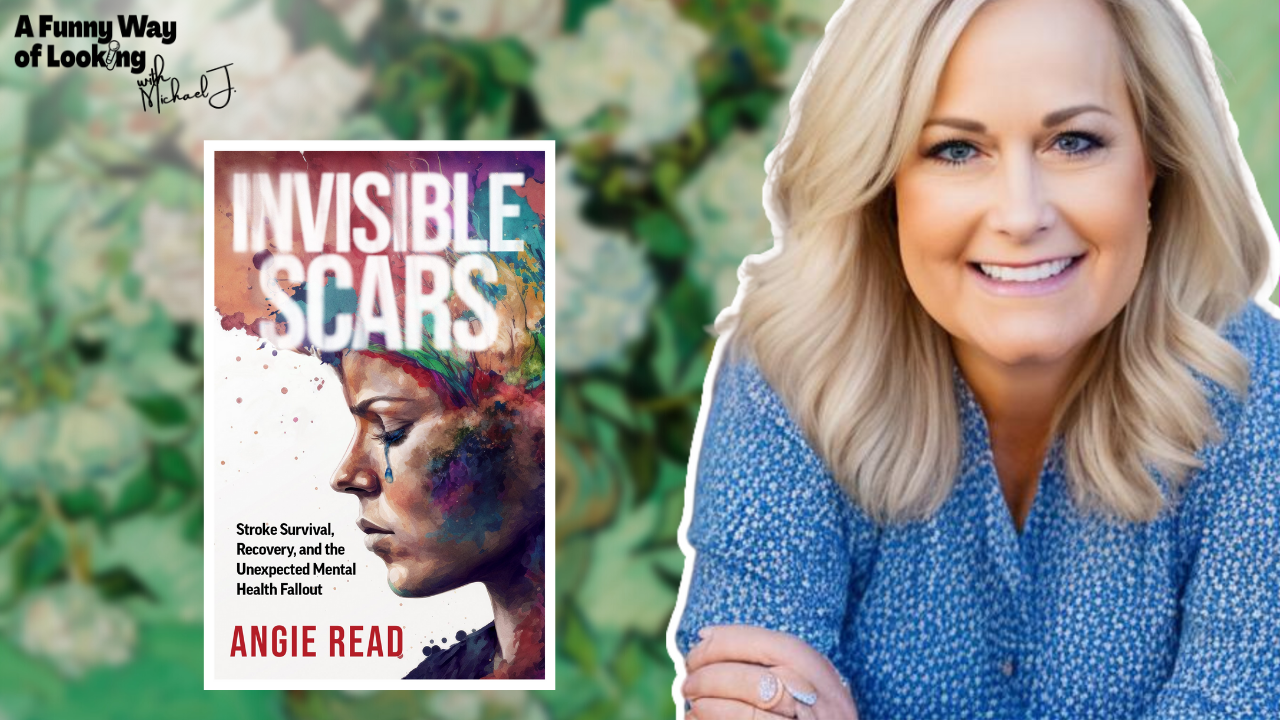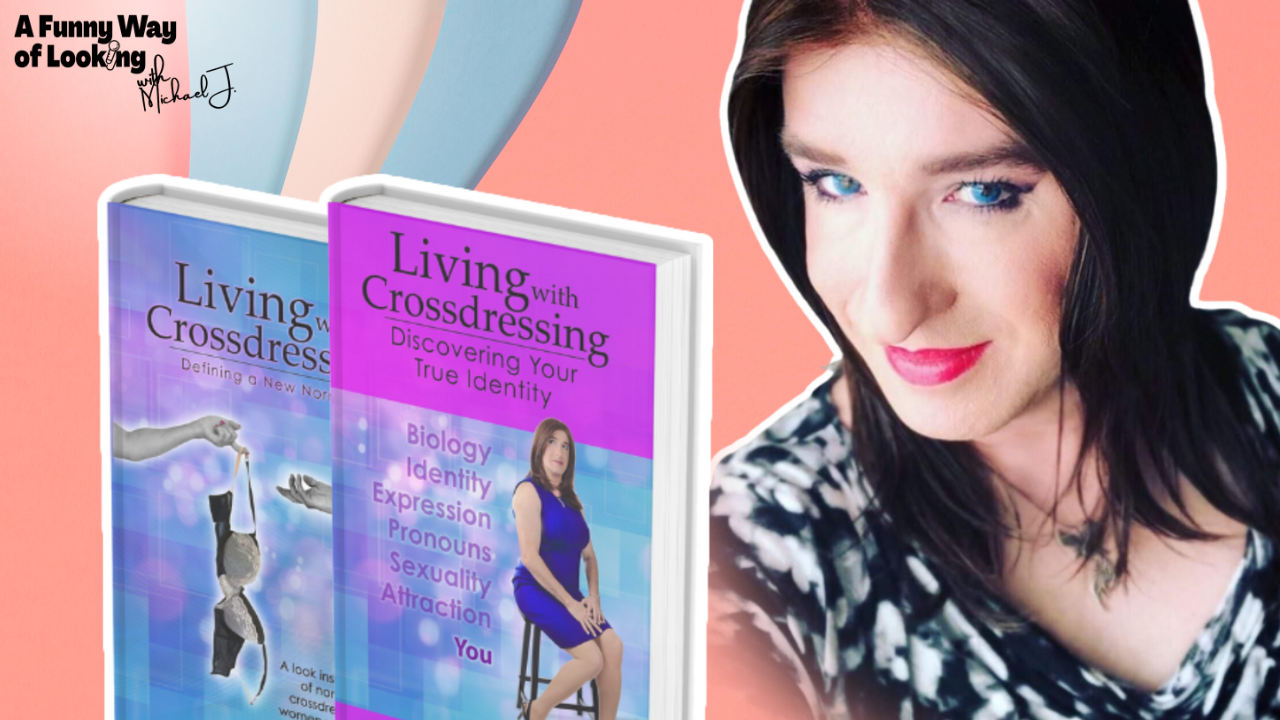Trusting Your Intuition
Meditation guru Tania Ho teaches people how to meditate in a fun and easy way, how to trust your intuition, and how to find clarity on your life’s journey.
A Funny Way of Looking with Tania Ho
MICHAEL J: What if your inner voice wasn't just a whisper but a confident guide that leads you to work with clarity and peace? And what if meditation is one of the ways you can access that guide and make that tiny voice just a little bit stronger?
Well, today we have somebody extraordinary to offer guidance as you journey further down the path of self-discovery and inner wisdom. I'm pleased to welcome Tania Ho, a luminary in the world of meditation and intuition. Tania is the founder and owner of Museflower Retreat & Spa, a sanctuary nestled in the serene landscape of, ladies and gentlemen, my very first international guests, Chiang Rai, Thailand.
Whether it's through Oracle Card readings, leisurely walks, or soulful retreats, Tania's mission is to help you unlock the door to your inner sanctuary. She's not just a meditation teacher; she's a bridge to a more intuitive you. She's also a multitasking marvel, a mom of two boys, and a thriving business owner, proving that it's entirely possible to integrate spirituality into the daily chaos that is life.
So, if you've ever wondered how to tap into your own inner guide and how to integrate mindfulness into your daily routine, you're in for an enlightening conversation with the amazing Tania Ho. Here we go.
“
Intuition is like that sixth sense we have or that inner compass that's inside us, like an inner GPS.
MICHAEL J: So, what do we want to start with? I want to ask you a question: What does intuition mean?
TANIA: To me, intuition is like that sixth sense we have or that inner compass that's inside us, like an inner GPS. And through our intuition, we kind of know which direction or, you know, what is most aligned with us. So, that is what I feel about intuition. It's really a kind of wisdom from the heart, I would say.
MICHAEL J: Yeah, how did you discover your intuition and start paying attention to it?
TANIA: Oh, wow. So, it was actually something I never really thought about—intuition. I think because in school we learn about logical thinking, we learn about using analytical thinking to weigh pros and cons. It was really after I graduated from school, like when I had a couple of job offers. Actually, two of them were in the States, and one was in Thailand. If you looked at the list of pros and cons, the one in Thailand probably had the most cons.
But then there was just this feeling, very hard to describe, like I felt like I wanted to take the job offer in Thailand. So that's what I did, and it really opened doors for me. I'm not originally from Thailand, so being here now, it's kind of like I felt that was one of the pivotal moments when I listened to my intuition, even though it was a feeling I couldn't describe. I didn't know it was my intuition at the time. And then this path kind of unfolded.
MICHAEL J: So, what about your intuition? Why is it that people trust their intuition, sometimes calling it a gut feeling? Is that different?
TANIA: Well, I feel it's the same thing. Okay, gut feeling, intuition, it's the same thing. Instinct, some people call it instinct. To me, sometimes that may be a little bit different. I actually read somewhere that instinct is a little bit more, you know, when there's danger around, then your instincts come through. So, it's kind of more driven by fear. Whereas your intuition is more coming from the space of love. So, it's just a little bit different in that sense, I feel.
MICHAEL J: Okay. So, here's one of the things I've always wondered about intuition. how do you know, maybe you're driving down the street and you think, “Should I go left or should I go right?” Alright, I normally go left. But, something just tells me that maybe the traffic's blocked down there or something. And you go,
“You know what, I'm gonna turn left anyway, I'm just going to do it”. And you get down there, and the traffic is blocked or it isn't blocked. But, how do you know that the other path, turning right, wouldn't have been the correct way to go also?
TANIA: Well, I always say, it's not like when we listen to intuition, that means you're going to be right all the time. So, that's going to be a common misconception. But, I feel like when we follow our intuition, that is where we can, if you believe we have a soul or our soul wants to grow and evolve, and that's the direction that our souls bring us through our intuition. That's how our soul speaks to us.
So, it doesn't mean the other path is the wrong path. I feel like it's more like there are multiple paths to get where you need to go, and maybe some are smoother, you know, some are shorter in terms of time, and some might take you on more of a detour, but you'll still get there, kind of thing.
MICHAEL J: Okay, so how do you know? Okay, let's talk about intuition. Let's talk about how intuition plays into meditation, or vice versa. What is the connection there?
TANIA: Yes, I did. So, well, meditation is, I'd like to backtrack a little bit to intuition. Some people call it the inner voice, as you said in the intro, and it's really like a whisper. So, a lot of times when we don't pay attention to it, it's kind of hard to hear that tiny whisper. The practice of meditation can really help us because when we are meditating, we are learning to listen and observe.
Meditation is a skill, just like any other skill, like cooking or cleaning. So, the more you do it, the better you get, and the easier it is to pay attention to. Like you said, there's that feeling, like the gut feeling. For some people, it's a gut feeling, and for others, intuition comes in different ways. So, you know, if you think about our five senses, intuition can come through any of those five senses, or maybe even a sixth sense, right?
MICHAEL J: And are we looking to explain intuition? Like, some people say they hear a voice or it's a feeling. What is it?
“
It [intuition] is different for everybody because our intuition speaks to each individual in a different way, depending on their dominant sense. You can think of it more like learning styles; everybody has a different learning style or orientation.
TANIA: It is different for everybody because our intuition speaks to each individual in a different way, depending on their dominant sense. You can think of it more like learning styles; everybody has a different learning style or orientation. For example, some people are more visual learners, some are more auditory learners, and some, like me, are more tactile and like to use their hands. So, depending on what your dominant sense is, your intuition will speak to you through that dominant sense.
For some people who are really visual, they might get images that pop into their head suddenly. For me, for example, I'm more of a feeling person, so it's like a deep knowing that I can't explain. Some people can actually feel it in their body, like a sensation, but it's not coming from them. And then for people who are more auditory, they might hear voices, not in a schizophrenic way, but like their inner voice, the sound or words guiding them.
MICHAEL J: So, when you're teaching people about intuition, how do you train them to tune into that inner feeling, voice, sound, or touch? How do you do that?
TANIA: So, we do have a workshop here, but it's not really training; it's more about remembering. I think many people actually use their intuition a lot, but they don't realize they do. The first thing we do is figure out your dominant sense. From there, we try various games and practices to help you understand how your intuition speaks to you. Because I think that's the main thing.
Once we know,
“Okay, this is how my intuition speaks,” you start building confidence. Then, you can distinguish the difference between when your intuition is speaking to you and when it's just your mind having a thought, or your ego telling you what to do.
MICHAEL J: Is there a difference between intuition and psychic ability? Or are they the same thing?
TANIA: So, they are a little bit, I would say, similar in my understanding. For example, one of the ways our intuition can manifest is through images. The term for this is clairvoyance. Clairvoyance can also be associated with being psychic. For some people, they receive images or impressions. And for those who are particularly gifted in their clairvoyant sense, they are psychics, and they can perceive a lot visually.
Intuition, on the other hand, serves as a gateway for me. It's where their spirit guides or the universe communicates with them, providing guidance. So, it's almost similar; psychics are exceptionally gifted in their visual perception of intuition.
MICHAEL J: So, do me a favor and describe your meditation practice. How do you build up your intuition, and what kind of meditation do you do with the people who come to your retreat? There are various types of meditation, so which one do you practice with your clients?
TANIA: Yes, well, we offer all kinds of meditations because, very similar to what I talked about, everybody has a different learning style, and meditation, it's the same. So, just before I describe my practice, I want to mention that this is the practice that works for me; it may not work for other people. That's why here at Museflower, we offer various options.
We have mindfulness meditation, but we also offer Dynamic Meditation, for example, which involves movement. Labyrinth Walk is another great way to meditate; you're not just sitting around. So, in some of our meditation classes, you're not only sitting for the whole class; there are other ways to meditate, such as mandala art.
For my own practice, I actually use mantra and mudra. Mantra is a tool of the mind or a sacred sound formula. You repeat a mantra; it's not like English words or affirmations like
“I'm strong” or
“I'm calm.” Mantras are traditionally sacred sounds or words from different languages. For example,
“Om” is a well-known mantra. I repeat a mantra multiple times, usually 108 times, as part of my practice.
After that, I sit in silence for a while, holding a mudra. Mudra refers to hand gestures, and you might have seen pictures of people in meditation with specific hand positions, like a
“peace sign”
or
“lotus position”
in yoga. I incorporate mudras into my practice as well.
MICHAEL J: Okay, so you also sometimes talk about the five senses and meditation, right?
TANIA: That’s right. Well, that's essentially how each of our senses serves as a gateway to help us access inner stillness. Even in traditional meditation, like focusing on the breath, it's because the breath acts as a gateway by engaging your sense of smell, even though you're not actually smelling anything—you're using your breath as a tool. It's one way to guide you into inner stillness.
Now, meditation can be challenging for many people, including myself, initially. Trying to focus and count your breath can be difficult, and it may lead to thoughts like
“I'm not good at this” or
“Meditation isn't for me.”
This can turn people away from meditation, even though there are various meditation techniques available.
For instance, visualization meditation is excellent for those who have a strong imagination and enjoy visualizing. This type taps into your sense of sight. Sound-based meditation, like mantra repetition, involves vocalizing the mantra out loud, which helps with concentration and becomes an anchor for the mind.
Regarding touch, there are techniques like mudra, which I mentioned earlier, or any form of movement meditation, such as Labyrinth walking, where you engage your whole body. Even a mindful walk in nature can be considered a form of meditation, too.
MICHAEL J: And so, you clear your mind so that you can do what?
TANIA: You're being really present, fully immersed in the present moment, and you're highly aware of all your senses. Sometimes, you may begin to notice what's happening in your inner world, not just thoughts but also emotions, feelings, or even insights. This is where intuition can offer guidance. Other times, it might be a moment of peaceful calm, and that's perfectly fine.
Sometimes during meditation, none of these experiences occur. As I mentioned, your mind may wander, and that's also okay. The important thing is showing up for the practice. Every day feels different, just like with other activities, such as doing yoga or working out. Some days you'll feel great, while other days you might not, but the consistency of practice is what matters in meditation, too.
MICHAEL J: And then, when you really get into the meditation, how did you feel like when you're in it, and your intuitions working, and everything is spot on? How does it feel to you?
TANIA: It's really a sense of just
“being,” understanding that we are human beings, not human doings. This is why we need practices to remind us of our
“beingness.” During meditation, it often feels like a deep sense of connection without active thoughts. It's not about thinking; it's about feeling. At times, it's almost as if there's an expansion happening within me. My dominant sense is feeling, so I can experience this sensation of growing larger, even though there's no physical expansion.
MICHAEL J: Yeah. So, if you're a mom, and you've got your business, and you've got everything going on in your life, how do you integrate, this your intuition into your daily life?
TANIA: That's a really good question. A lot of time, when I have to make decisions or think about what I'm going to do or offer, I find myself, like everyone else, caught up in my headspace. However, for me, there's a feeling, a sensation. It's like a gut feeling. If something feels right, it's coming from my heart's energy space, and I know that's what I'm supposed to do.
But when I'm stuck in my head, pondering between options, I can feel it. I'm just up here in my headspace, going back and forth. That's usually my cue to pause, wait for a while, and let things unfold. Maybe there are some aspects I haven't seen yet. So, I wait until it becomes clear. Interestingly, when I'm debating between option A and B, most of the time, option C emerges out of nowhere, and it's like,
“Oh, okay!”
MICHAEL J: That's pretty cool. What are some quick and easy techniques that people can use in their daily lives to help them tune into their intuition?
TANIA: Wow, pick one? I would say meditation. Meditation is a really good one. I would also say journaling has been helping me a lot. Journaling involves writing down anything that comes to mind. It's a way to connect with your inner voice. I started journaling in high school, and it was something that really helped me, even before I started meditation or anything like that. It's about getting used to listening to your own inner voice and discerning when your true, authentic self is showing up versus when you're doing things because you think others expect it.
There are various tools available to enhance intuition, like oracle cards, as you mentioned earlier. That's something I love doing; I pick a card for myself every day. I also do it with my guests here, and they enjoy it too. After our class, we often pick a card to see what message of the day resonates with us, and it usually does in some way.
MICHAEL J: Nice. When you have guests there, do you do a collective form of meditation and intuition?
TANIA: So actually, we have different classes. We have a class schedule with various classes available from morning to afternoon, allowing the guests to choose the classes they want to attend. We offer yoga, different types of meditation, and workshops. For example, we have an intuition workshop that's more fun, where people can learn to practice using games to develop their intuition.
MICHAEL J: Is there any technology that you use in your meditation teaching things like this? Or is it more natural? How does the whole class work?
TANIA: Ah, so in the class, the only technology used is for the music playing in the background. Most of our activities, such as labyrinth walks, shamanic journeys, and another one I didn't mention, meditation with taste (cacao ceremony), don't require technology. While you do need to prepare some stuff, it's not really considered technology. I guess the only technology we use is for playing music.
MICHAEL J: So, you get away from technology and you become part of nature?
TANIA: Yes, that’s right.
MICHAEL J: So, if you could just hook up a microphone to everybody in the world, and you're standing on stage, and you could say,
“I want this to be implanted into your brains,”
what would that thing be? What would it look like?
TANIA: I think that would be to trust your intuition. Trust your intuition. It's not even just about meditation; it's about trusting your intuition. Because I truly feel that many of us, you know, first of all, intuition is here to guide us and help us fulfill our purpose here. That goes back to that big question,
“Who am I? What is the meaning of my life? What is my purpose here?”
Everybody will ask these questions at some point in their lives. Usually, you know,
“Why am I here?” So, to answer that, we really have to follow our intuition. Intuition is the gateway through which our soul or the universe speaks to us. It helps us understand,
“Okay, this is why I'm here.”
So, really trust your intuition. This applies to everything; something will resonate with us, something is aligned with us. When we talk about being our true authentic self, our intuition guides us to be the most true and authentic self that we can be here.
About Our Guest
Tania Ho is a meditation teacher and owner of Museflower Retreat & Spa in Chiang Rai, Thailand, offering yoga, meditation and a spa retreat. Find more about Tania and read her full bio here.
To watch more A Funny Way of Looking, visit our
Episodes page. If you enjoyed this article and want more epic content,
subscribe to our newsletter!



